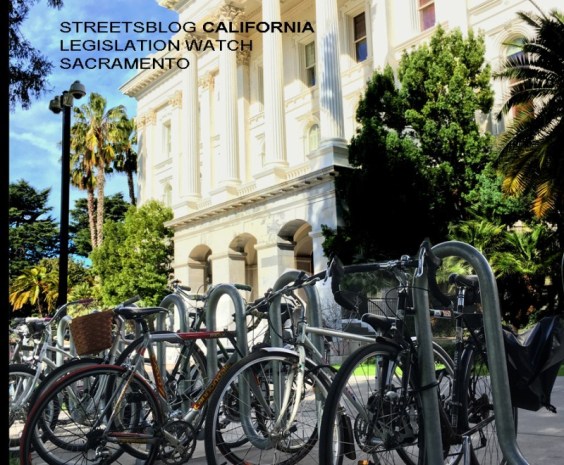Senate Dems Unveil Auto Safety Legislation
4:26 PM EDT on May 4, 2010
Democrats are moving quickly on their plan to take a unified approach to auto safety reforms in the aftermath of the Toyota recalls, with Senate Commerce Committee members releasing a new bill today that would quintuple the maximum existing penalties for carmakers who -- like Toyota -- fail to promptly notify the public of defective products.
The Commerce panel's bill, released today by panel chairman Jay Rockefeller's (D-WV) office, also would authorize $300 million in additional funding over the next three years for auto safety enforcement and provide whistleblower protections to car industry employees who notify the National Highway Traffic Safety Administration (NHTSA) of possible safety risks.
The lifting of existing caps on per-vehicle penalties is likely to please safety advocates such as Joan Claybrook of Public Citizen, who have called for much higher penalties for automakers found to be in violation of NHTSA standards. Toyota has agreed to a record-high $16.4 million fine for its slow response to the widespread defects found in its gas pedals but did not acknowledge any improper actions.
In addition to the Commerce panel's release today -- check out a full summary of the bill after the jump -- the House Energy & Commerce Committee is planning a Thursday hearing on auto safety issues.
(ed. note. This post was corrected from an original draft that improperly totaled the additional NHTSA funding.)
TITLE I -
STRENGTHENING VEHICLE ELECTRONICS AND SAFETY STANDARDS“Safety will come
first. This bill includes strong new safety standards to
protect Americans in their cars and on the road,” Chairman
Rockefeller said.The Motor Vehicle
Safety Act of 2010 includes the following provisions to strengthen
vehicle safety standards:· Establishes a Stopping Distance and Brake
Override Standard — This provision
mandates a performance standard by which every automobile must be
able to stop within a certain distance when the engine is operating
with an open throttle. Automakers may meet this standard
through the installation of a brake override feature in which the
brake pedal’s input to the engine’s computer always overrides the
accelerator pedal’s input.
Establishes a Pedal
Placement Standard — To address the
potential for out-of-place floor mats and other objects to obstruct
vehicle foot pedals, this provision would require NHTSA to issue a
rule requiring minimum distances between floor pedals, minimum
distances between foot pedals and the vehicle floor, and minimum
distances to account for any other potential obstructions to pedal
movement.Establishes an
Electronic Systems Performance Standard — There are currently no
standards governing the safety and performance of vehicle
electronics — including electronic throttle control — as a
system within the vehicle. This provision would require NHTSA
to issue a rule requiring passenger vehicles to meet minimum
performance standards for electronic systems.· Establishes a Keyless
Ignition Systems Standard — Consumer complaints to NHTSA about
sudden acceleration often noted that drivers of vehicles with
push-button ignitions could not determine how to turn off the engine
during an emergency. This provision would require NHTSA to
issue a rule standardizing the means by which a driver who may be
unfamiliar with the vehicle uses the ignition system to safely bring
the vehicle under control during an emergency situation.· Establishes a Vehicle Event Data Recorders (EDRs)
Standard — Like “black boxes” in airplanes, EDRs would record
crash data information to help determine the root cause of a crash.
This provision would require that manufacturers equip all new
vehicles with EDRs that record at least the 60 seconds prior to —
and 15 seconds after — a vehicle crash and airbag deployment. To
protect privacy, the data on an EDR would be deemed the sole property
of the vehicle owner or lessee.· Establishes a Transmission Configuration Standard
— Consumers involved in sudden acceleration incidents noted that
sometimes the label for “neutral” on gearshifts did not
correspond with the actual neutral position of the gearshift. This
provision would require NHTSA to issue a rule that requires an
intuitive configuration and accurate labeling for gear shifting
controls, including for drivers not familiar with the vehicle.TITLE II –
ENHANCED SAFETY AUTHORITIES“NHTSA
needs strong teeth to stop automakers from
skirting safety-related reporting requirements – and to
crack down on them when they do,” Chairman Rockefeller said. “Right
now, NHTSA can fine car makers who violate the rules only
up to $16.4 million – and for multi-billion dollar car
companies, that’s like paying a parking ticket. This
bill will raise civil penalties and remove the cap on auto safety
fines, incentivizing automakers to report safety defects as required
by law, or risk paying the price.”The Motor Vehicle
Safety Act of 2010 includes the following provisions to strengthen
NHTSA’s ability to crack down on car makers and to take unsafe
vehicles off the road:· Raises Civil Penalties — This
provision would increase the per-vehicle civil penalty from $5,000 to
$25,000 and remove the overall cap on civil penalties for automakers
that intentionally fail to report vehicle safety defects to NHTSA, or
that intentionally provide misleading information about NHTSA.
Creates Imminent
Hazard Authority — This provision would give
the NHTSA Administrator expedited authority to stop further sales of
a vehicle if a defect creates an imminent hazard that could lead to
deaths and serious injuries. An affected auto manufacturer or
parts supplier would have the right to an expedited review in a
federal court of appeals.TITLE III –
TRANSPARENCY AND ACCOUNTABILITY“Too often,
consumers don’t know where to report vehicle safety defects
or learn about new safety upgrades,” Chairman Rockefeller
said. “Sometimes, what little information they have
is confusing or poorly organized – like NHTSA’s early warning
database. This bill empowers consumers to know where to go to
report defects and to learn more about their cars, and it
mandates unprecedented information-sharing, accountability and
transparency from the automakers and NHTSA.”The Motor Vehicle
Safety Act of 2010 includes the following provisions to improve
transparency and accountability for vehicle safety:
Improved Early
Warning Reporting System — This provision
would require NHTSA to modernize its early warning reporting system,
making it easier for consumers to use and understand NHTSA’s
online database of vehicle defect reports.Promotion of
Vehicle Defect Reporting — This provision would require the
placement of a sticker or other notification in a location
accessible to the consumer about how to contact NHTSA to report a
potential vehicle safety defect.Public Availability
of Early Warning Data — This provision
reverses the presumption that early warning data is kept
confidential unless the Secretary of Transportation decides
otherwise – to a presumption that early warning data is made
public unless the Secretary decides otherwise.Consumer Notice of
Software Updates and Other Communications with Dealers —
This provision requires manufacturers to give public
notice of vehicle software updates. By requiring consumer
notice of software updates or modifications, consumers will be
better informed about potential safety issues affecting their
vehicles. For consumers who do not use dealership mechanics,
they still have a right to know when they need to have their
vehicle’s software updated for safety reasons.Whistleblower
Protections and NHTSA Hotline for Auto Workers — This provision
would grant auto industry personnel the same whistleblower
protections currently provided to airline employees. This
provision also would require NHTSA to establish a “hotline” just
for mechanics and other auto industry workers to confidentially
report potential vehicle defects.Corporate
Responsibility for NHTSA Reports — This
provision would require the senior auto executive in the U.S. to
attest in writing that all information submitted in response to a
NHTSA investigation is accurate and complete. Submitting false
information could result in civil or criminal penalties.Stop the Revolving
Door — This provision would prohibit NHTSA
employees working on vehicle safety from working for the auto
industry for three years after leaving the agency, if the
private-sector employment involves communication with NHTSA or
giving advice about NHTSA.TITLE IV – FUNDING
“We are committed
to making sure NHTSA finally has the full authority
and resources it needs to save lives and prevent injuries,”
Chairman Rockefeller said.The Motor Vehicle
Safety Act of 2010 authorizes higher funding levels for vehicle
safety investigations and enforcement at $200 million in FY2011, $240
million in FY2012, and $280 million in FY2013. NHTSA vehicle
safety operations received $140 million in FY2010. Higher
funding levels would be used to hire more safety engineers and
experts at NHTSA, update vehicle crash testing facilities, and to
improve NHTSA’s vehicle safety databases.
Stay in touch
Sign up for our free newsletter
More from Streetsblog USA
Talking Headways Podcast: Charging Up Transportation
This week, we talk to the great Gabe Klein, executive director of President Biden's Joint Office of Energy and Transportation (and a former Streetsblog board member), about curbside electrification.
Why Does the Vision Zero Movement Stop At the Edge of the Road?
U.S. car crash deaths are nearly 10 percent higher if you count collisions that happen just outside the right of way. So why don't off-road deaths get more air time among advocates?
Donald Shoup: Here’s a Parking Policy That Works for the People
Free parking has a veneer of equality, but it is unfair. Here's a proposal from America's leading parking academic that could make it more equitable.
Thursday’s Headlines Turn Up the Heat
Whether you realize it or not, climate change is here, and not just in the form of natural disasters.
Calif. Legislators Tackle AV, School Zone Safety
Are AVs freight trucks ready to be deployed on California roads with no one in them?




